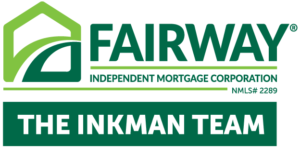Reverse mortgage loans are a popular financing option for seniors in Fort Worth, Texas, that can provide seniors with a source of tax-free* cash flow while remaining the full owners of their homes.
How Does a Reverse Mortgage Work?
A reverse mortgage loan allows homeowners 62 or older to convert a portion of their home equity into cash without selling their home or making monthly mortgage payments. Instead, they only need to take care of upkeep and property charges, like taxes and insurance.
The loan amount is determined by the borrower’s age, the value of their home and current interest rates.
The loan is typically repaid when the borrower moves out of the home, sells it or passes away. If the owner passes, their heirs have the first right of refusal to buy the home. Should they decide to sell it, they’ll get any remaining equity in the property after repaying the loan balance.
Our Reverse Mortgage Loans in Fort Worth, Texas
Home Equity Conversion Mortgages (HECMs)
HECMs are the only reverse mortgage loans insured by the Federal Housing Administration (FHA) and are the most common. It allows homeowners who are 62 years of age or older to convert a portion of their home equity into cash. Because the cash is considered loan proceeds and not income, it is tax-free.*
Borrowers can elect to receive their proceeds in several ways, including lump sum, line of credit and monthly payments. As the FHA insures them, HECMs are non-recourse loans, meaning the homeowners or their heirs will never owe more than the home’s market value at the time of sale.**
HECM for Purchase (H4P)
The H4P reverse mortgage loan allows seniors to purchase a new home using the equity from the sale of their previous home, which can greatly increase their buying power (sometimes up to 200%)!
The increased purchasing power enables many seniors to move to more expensive homes and areas than they could otherwise afford. The homeowner doesn’t need to make monthly mortgage payments on their new home. Instead, they just have to take care of property charges like taxes, insurance and upkeep. As a bonus, if the home’s value appreciates over time and exceeds the amount borrowed at the time of sale, the homeowners or their heirs may receive the remaining equity.
Jumbo Reverse Mortgage Loan
Jumbo reverse mortgage loans are designed for high-value homes. With a HECM, the FHA limits the amount that you can borrow against the home to $1,089,300. So for homes worth more than the FHA limit, a traditional HECM could leave a lot of money on the table.
With a jumbo reverse mortgage, the homeowner can borrow against the home’s total value, potentially significantly increasing their proceeds from a reverse mortgage loan.
Reverse Mortgage Loan Benefits
Access To Cash
Home equity is great, but without refinancing the home and taking on new monthly loan payments, you can’t access it. A reverse mortgage loan enables homeowners to access a portion of their home equity without having to make monthly mortgage payments going forward. Instead, they just need to handle property charges like taxes, insurance and home upkeep.
Realize Home Equity Gains
Home equity hit all-time highs recently, but without selling their homes, the only change that most homeowners experience is higher property taxes. With a reverse mortgage loan, the borrower remains the owner, can live there as long as they want and still benefit from the home’s appreciation, especially in a market like Fort Worth.
Buffer Strategy and Portfolio Hedging
Using a reverse mortgage as a financial buffer can be a smart retirement strategy.* Reverse mortgage loans allow retirees to tap into their home equity to cover unexpected expenses or to supplement their retirement cash flow in down markets without dipping into their savings or selling off investments at a loss, which can help make those assets go further.*
Owning the Home
There is a common misconception that when you take out a reverse mortgage loan, it changes the borrower’s status as the sole owner of the home. Reverse mortgage loan borrowers still own their homes exactly as they did before. As long as they comply with the loan terms, no one can make them leave or sell their home.
No Monthly Mortgage Payments
A key benefit of a reverse mortgage loan is that borrowers are not required to make monthly mortgage payments. Instead, they are responsible for property-related expenses, such as taxes, insurance and maintenance costs that they would have to pay without the loan. Switching to optional monthly payments can be particularly beneficial for retirees who still have traditional mortgage balances or need to supplement their retirement cash flow. For those who own their homes outright, the potential loan proceeds are just that much larger.
Non-recourse Feature
Home equity conversion mortgages (HECMs) are non-recourse loans, which means that the homeowner or their heirs will not have to pay a loan balance out of pocket. Their obligation will be satisfied simply by selling the home. For example, if someone takes out a HECM when the housing market peaks, but sells their home years later when the market is much lower, neither the homeowner nor their heirs will be obligated to pay the difference. Conversely, if the home appreciates even further over that time, the homeowner or their heirs will be entitled to any leftover equity after the sale of the home pays off the loan. This non-recourse feature can provide peace of mind to those concerned about passing on debt to their heirs.**
Financial Flexibility
Borrowers have a great deal of flexibility in receiving their reverse mortgage loan proceeds. They can opt for a lump sum payment, monthly payments, a line of credit or a combination of these options. There are virtually no restrictions on using the funds, so borrowers can allocate the money as they see fit, allowing borrowers to use their loan proceeds to achieve unique financial situations and goals.
Long-term Care (LTC)
Even if you have money set aside for long-term care, it’s difficult to predict if it will be enough. Many people use their reverse mortgage loan proceeds to help pay for an in-home caregiver and modifications to make their homes better for aging in place. Some people also use their loan proceeds to help pay for life insurance plans, including coverage for long-term care expenses.*
FHA-insured
The Federal Housing Administration (FHA) insures HECMs, which offers consumer protections in addition to the non-recourse feature and can also help borrowers access more funds than they might otherwise qualify for.
Interested in a Reverse Mortgage Loan in Fort Worth, Texas?
Fill out the form and one of our reverse mortgage specialists will be in touch!
*This advertisement does not constitute tax or financial advice. Please consult a tax and/or financial advisor regarding your specific situation. **There are some circumstances that will cause the loan to mature and the balance to become due and payable. Borrower is still responsible for paying property taxes and insurance and maintaining the home. Credit subject to age, property and some limited debt qualifications. Program rates, fees, terms and conditions are not available in all states and subject to change.



